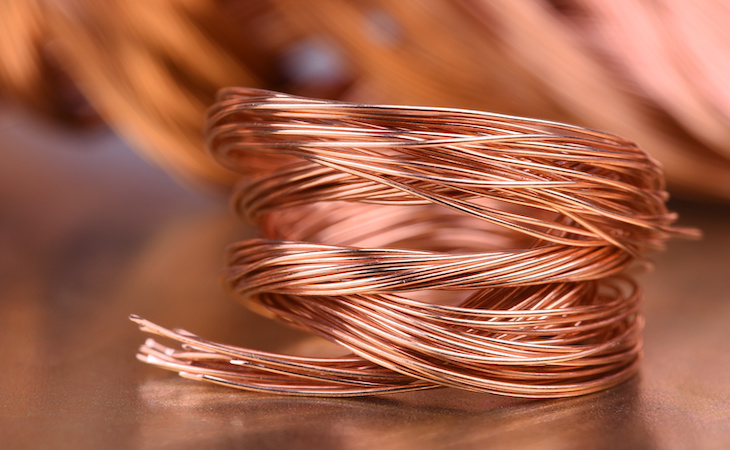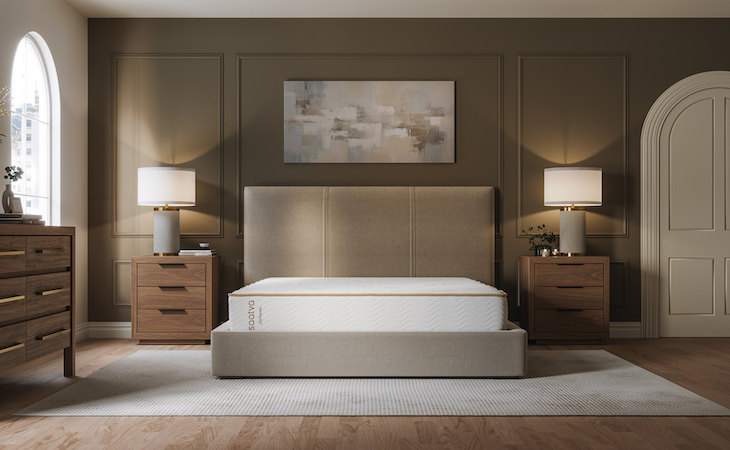If you’re in the market for a new memory foam mattress, then you’ve probably noticed that some new mattresses contain copper. Understandably, you might have questions. What is it doing in your mattress? Will copper in a memory foam mattress hurt you?
First of all, it helps to remember that copper is a mineral found in all body tissues in humans. Our bodies need copper to stay healthy. Specifically, it helps with a range of bodily functions including red blood cell formation, maintaining healthy bones, and supporting your immune system.
Copper is also found in many items in your home, for example, in wiring and cables, door knobs and railing, kitchen sink, pipes, tools, and sometimes cookware.
Still, are there any potential risks of having copper in your mattress? And what are the benefits? Read on to find out.
Why is copper used in mattresses?
In the last few years, copper has become popular in memory foam mattresses because it has some beneficial properties:
- It’s naturally antimicrobial. Since you spend many hours in close contact with your mattress it can easily become a hospitable environment for bacteria and dust mites. Copper repels bacteria and creates a naturally antiviral and antimicrobial environment, which is particularly important for people with allergies and sensitivities—but really, is good for all of us. One study in particular found that hospital beds infused with copper reduce surface bacteria levels by 94%.
- Cooper has cooling properties. That’s because copper has high thermal conductivity, meaning it can quickly absorb your body heat and diffuse it, thereby whisking it away from your body and helping you stay cool naturally. In other words, similar to graphite, copper’s job in memory foam mattresses is to combat this material’s natural tendency to retain body heat and make you sweat at night.
- It’s also been claimed that copper can assist with muscle recovery and even help ensure the correct spinal alignment. The claim is that copper gets stronger when it’s compressed, thus providing better support for your pressure points. This would of course make copper-infused mattresses a fantastic option for anybody with back pain issues, but unfortunately, as of today, there aren’t any studies to back this up.
Is copper in mattresses safe?
While the jury on some of the benefits attributed to copper is still out, it does appear that it’s generally a safe material to have in your mattress. This comes with a few caveats:
- First, some people may have an allergic reaction to copper, such as skin irritation. If you know that you have a copper allergy or a general sensitivity to metals, then you should avoid copper in all products including mattresses.
- Second, make sure to buy your mattress from a reputable brand whose mattresses use high-quality materials and generally meet industry standards for safety and durability.
- Finally, you should always follow manufacturer instructions when it comes to caring for your mattress. This will ensure that your mattress will stay safe to use over time and will last you as long as possible.
FAQs
Is it good to have copper in your mattress?
Copper is said to have cooling properties and be naturally antibacterial. Because of its high thermal conductivity, copper can quickly absorb your body heat and whisk it away from your body, meaning that your mattress will sleep cooler than a typical memory foam mattress. It will also make it a naturally germ-free environment. One study found that hospital beds infused with copper reduce surface bacteria levels by 94%.
Is copper safe in mattress toppers?
Mattress toppers containing copper are generally safe to sleep on. The exception to this are people with a copper allergy or sensitivity to metals.
Are copper-infused mattress protectors good?
Mattress protectors are a must if you want to keep your mattress clean and have it last longer. Copper-infused mattress protectors go one step further because copper is a naturally antibacterial material. Additionally, because of its high thermal conductivity (ability to quickly whisk away heat away from your body), a copper-infused mattress protector may help you sleep cooler.
Is copper OK to sleep on?
Copper appears to be a safe addition to mattresses and mattress protectors and could potentially make your environment cooler and germ-free. The only exception to this is people who have a copper allergy or a metal sensitivity—they should avoid all products containing copper.
What is an antimicrobial mattress—and do you need one? Learn more about antimicrobial mattresses to see if they’re right for you.




